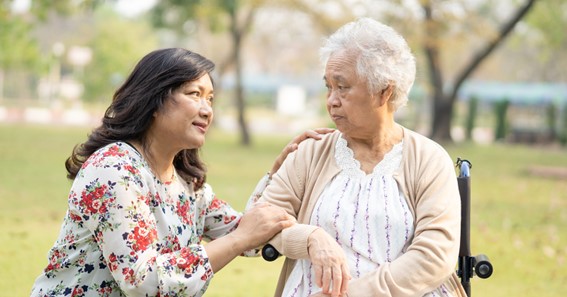Dying is a fact of life that everyone will experience. No one can predict how or when the end of life will occur. According to HealthKeeperz, taking a proactive approach can give one a sense of empowerment and dignity. It also gives those left behind a framework to follow while ensuring their loved one’s final wishes are honored.
Why Take a Proactive Approach?
In this day and age of being proactive with one’s life, it makes sense that this would spill over into end-of-life decisions. However, this is often not the case.
For many people, these crucial choices are left until it’s too late. The capability to make such decisions has passed, or the loved one has simply passed before the subject could be broached successfully.
End-of-Life Care Explained
People might not take a proactive approach to their end-of-life decisions because they don’t understand what is involved. Health care at the end stages of life can encompass various options. The patient’s condition guides these.
This often involves moving from curative and palliative care to only palliative care. This is also called hospice or end-of-life care.
What is Palliative Care?
Palliative care’s primary function focuses on continuing to provide the patient with the quality of life while also providing comfort. The cornerstone of this approach is managing the patient’s pain and controlling their symptoms.
The patient’s medical provider leads this aspect of palliative care. However, the implementation of such end-of-life care is headed by a dedicated care team, like those at HealthKeeperz. This team can include health aides, skilled nurses, family members, and others who commit to caring for the patient.
Patient’s Physical Needs Addressed
As a patient moves into the end-of-life phase, the palliative care team addresses their physical and practical needs. Functions such as personal hygiene and feeding are performed regularly.
Because loved ones could address such care, hired healthcare workers, or family members, it’s important that scheduling is consistent. This helps ensure that these crucial necessities are performed routinely and consistently. Additionally, this approach helps reduce stress for all involved while maintaining high patient care.
Click here – Strategies for Business Resilience: Weathering the Storms and Keeping Afloat
End-of-Life Care Goes Beyond the Physical
While the patient’s physical needs are likely to be those that are the most obvious at first glance, it’s crucial that both the spiritual and emotional aspects of the person are acknowledged and addressed, for many people — patients and caregivers alike — relying on the spiritual aspects of life while they are going through a difficult time provides them with the support they need.
The benefits of HealthKeeperz spirituality cannot be overlooked. Not only is this reliance crucial to the emotional health of everyone involved, but it also helps address the burnout often seen during these times. Leaning into their spirituality provides comfort while enabling patients and their healthcare team to tap into the emotional resources a strong faith-based community offers.
HealthKeeperz focuses on providing a holistic approach to each patient’s end-of-life care. By focusing on addressing the complete needs of patients and their families, HealthKeeperz ensures that an already-stressful situation is addressed compassionately, transparently, and completely. Because of this, patients and loved ones can focus on one another during this challenging time.
